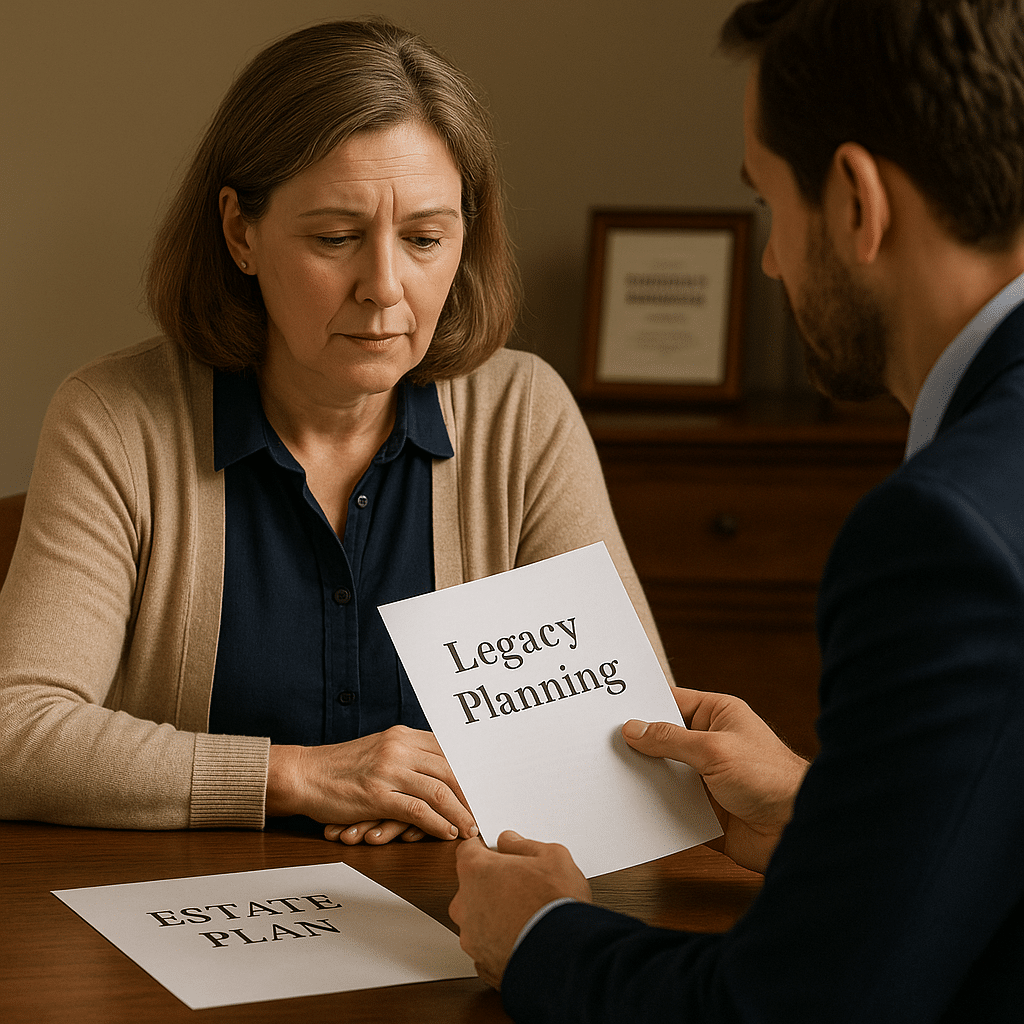Not everyone has children or close family to inherit their estate — and that’s perfectly okay. But if you don’t have direct heirs, estate planning becomes even more important. Without a will or trust, Georgia’s intestacy laws decide where your assets go — and the results may not reflect your wishes.
Here’s how to protect your assets, choose meaningful beneficiaries, and ensure your legacy is handled exactly the way you want.
What Happens If You Die Without Heirs in Georgia
If you pass away without a will, Georgia law determines who inherits your property based on a legal hierarchy of relatives under O.C.G.A. § 53-2-1.
The general order is:
- Spouse and children
- Parents
- Siblings
- Nieces and nephews
- Aunts, uncles, and cousins
If no relatives can be found, your property ultimately escheats to the State of Georgia — meaning the government takes ownership.
That’s why it’s crucial to have a clear estate plan, even if you don’t have immediate family.
For details on Georgia probate rules, visit the Georgia Probate Court website.
Why Estate Planning Still Matters (Even Without Heirs)
Many people without children assume they don’t need a will — but that leaves important questions unanswered:
- Who will handle your estate?
- Who will receive your assets?
- Who will make medical or financial decisions if you become incapacitated?
With a comprehensive estate plan, you can decide all of this yourself, instead of leaving it to the courts.
Our Georgia Estate Planning Attorneys can help you create a plan that honors your values and ensures your wishes are respected.
Choosing Beneficiaries Without Direct Heirs
If you don’t have children or close relatives, you still have meaningful options for distributing your assets:
1. Extended Family or Close Friends
You can name nieces, nephews, cousins, or lifelong friends as beneficiaries in your will or trust.
2. Charitable Giving
Many people choose to leave part of their estate to a charity, foundation, or educational institution that aligns with their beliefs. This can also provide potential tax benefits.
Learn about charitable trust options through our Georgia Charitable Giving and Trust Planning page.
3. Religious or Community Organizations
Churches, nonprofits, and community programs can be named as beneficiaries or included in a charitable remainder trust.
4. Establish a Legacy Fund or Scholarship
You can create an ongoing impact through a memorial scholarship or endowment fund that reflects your passions or life’s work.
5. Pet Trusts
If you have pets, Georgia law allows you to create a pet trust under O.C.G.A. § 53-12-28 to ensure they’re cared for after your death.
Designating a Trusted Executor or Trustee
When you don’t have direct heirs, choosing the right executor (to manage your estate) or trustee (to oversee your trust) is critical.
You can appoint:
- A trusted friend
- A professional fiduciary
- A law firm or trust company
This person or entity ensures your estate is distributed according to your plan and all legal and financial duties are handled properly.
Our Georgia probate attorneys can serve as or assist your chosen executor to ensure everything runs smoothly.
Planning for Incapacity
Even if you don’t have heirs, you still need to plan for who will make decisions if you become unable to do so yourself.
Create:
- A Durable Power of Attorney for financial matters
- An Advance Healthcare Directive for medical decisions
- A HIPAA authorization to allow access to medical records
These documents ensure that someone you trust — not a court-appointed stranger — handles your affairs.
For details, see our guide on Georgia Power of Attorney and Advance Directives.
Avoiding Probate Delays and Costs
Even simple estates can face delays if not properly structured. Consider:
- A revocable living trust to bypass probate and maintain privacy
- Payable-on-death (POD) or transfer-on-death (TOD) designations for accounts
- Keeping beneficiary information up to date
These tools ensure your assets transfer efficiently to your chosen recipients.
Final Thoughts
Not having direct heirs doesn’t mean you don’t need an estate plan — in fact, it means you need one even more.
Without clear instructions, your assets could go to distant relatives you’ve never met or even revert to the State of Georgia.
Creating a will or trust gives you full control over your legacy, lets you support causes that matter to you, and ensures your hard-earned assets are used according to your wishes.
If you’re ready to take control of your estate, contact Hurban Law for guidance on crafting an estate plan tailored to your goals and Georgia law.





